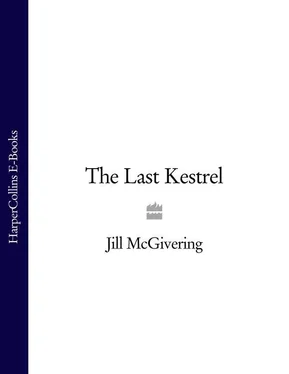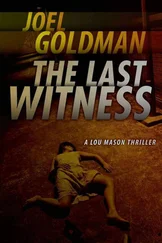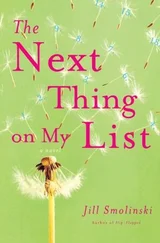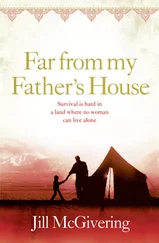Her face was flattened against the mud. Cool against her cheek. Darkness. After some time, she didn’t know how long, she heard shuffling and whispering. A very ordinary noise. It seemed to drift down to her from across a vast divide. She lay still, trying to block it out. The noise grew louder.
A small hand brushed against her hair, tentative at first and soft, then a little firmer as it stroked. Another hand patted her back, light rhythmical taps, the way a child might bounce a ball. She let herself sob a little more, leaking tears and mucus into the wet mud round her face. The hands paused, stopped. There was whispering. She tried to ignore it, to shut out the world, to focus on her grief, her pain. After a few minutes, the hands started again to pat, to stroke.
Something landed on the mud beside her head, smooth skin rubbing up against her temple, nuzzling her. She lifted her head a fraction and opened her eyes. A pair of clear brown eyes were an inch or two from her face, full of worry and puzzlement.
‘Hasina Auntie?’ Sima asked. ‘What’s wrong?’
She closed her eyes again, let her head fall back to the wet mud. She could sense the other children as well. That must be Nadira who was patting her back and crooning nonsense in a low voice, as if she were soothing a favourite doll. Hasina could hear Yousaf too. He was out in the back, perhaps, talking to the goats, petting them and setting them twitching on their tethers.
Hasina tried again to lift her face. Her head was throbbing. She should just die here. Coming back to life was too hard, too painful.
‘We came to see you,’ Sima said. She reached in to Hasina and tried to wipe off her filthy face with her scarf. ‘To say hello.’
Hasina couldn’t speak. She let the girls prod her into a sitting position, rested her back against the cot. She looked sightlessly at the dead legs stretched out in front of her, worn out with running.
Sima tried to bend herself into Hasina’s vision. ‘Hasina Auntie,’ she said, ‘shall I fetch Mother?’
Hasina shook her head. May God protect her from that foolish woman. Sima disappeared. Hasina could feel the warm shape of Nadira cuddled beside her. She was still patting Hasina, now on the thigh.
Sima reappeared with a cup of water. ‘Drink this,’ she said. She pushed it into Hasina’s hands. ‘Water is very good for health. You’ll feel much better.’
She took the water and drank. It was cool and pure in her dirty mouth. I might get better, she thought suddenly. What if I were to survive and carry on without him? What an insult that would be. She fell to weeping again, her hands to her face. The small arms of the girls hung on her wherever they could find purchase.
The children stayed with her all afternoon. They crouched beside her, gazing at her with anxious eyes, until she finally stopped crying. Then, as she sat there, worn and indifferent, they started to prattle.
‘I like your house,’ Sima said. ‘It’s quiet.’ She pulled Nadira to her feet, took both her hands and started to turn with her. ‘There’s always someone shouting in ours. It’s too noisy.’
Hasina let her chin fall to her chest. It will always be quiet here now. It is a dead house.
The girls started to spin, bumping into the cots. They fell in a heap, giggling. Hasina watched them dully.
‘Will you tell us more?’ Sima said. She rolled onto her stomach and kicked up her legs behind her. ‘Your story. About the village and the children.’
‘Please, Hasina Auntie!’ Yousaf had appeared in the doorway. ‘No one tells us stories except you.’
Hasina, looking at him, thought of Aref. Aref’s face when he was a boy. The long lashes that veiled his eyes, the softness of his skin, his milky smell. She turned her face away from them. ‘There is no more story,’ she said.
Late in the afternoon, she took the children home. She heard Palwasha scold them as they went into the house, the slap of a hand on bare skin. Where had they been? Thoughtless creatures.
Hasina sank to the ground, there in the compound yard, her legs too weak to bear her. When Palwasha came out with strong sweet tea, Hasina left it sitting beside her in the dirt, steaming, until it was cold and wasted.
Finally Karam came out. He crouched beside her and put his hand on her shoulder.
‘I salute you,’ he said in a low voice, ‘precious mother of a martyr. May Allah bless you.’
Hasina didn’t look at him.
‘You shouldn’t have seen it,’ he said. ‘That was wrong.’ He put his hand under her chin and lifted her face. ‘You must keep this secret.’
She stared at him. What could he be thinking? How could she possibly…?
‘Remember the gossip in the village after the death of Masoud’s son.’ Karam’s eyes were stern. ‘He was a martyr.’ He paused. ‘But not everyone understood.’
Hasina did remember. People said the boy brought danger to the village. No one wanted their own sons to copy him.
Karam took her arm, pulled her roughly to her feet. For a moment, she thought her legs would falter. But Karam’s hand was gripping her, keeping her upright. ‘Go home,’ he said. ‘Say nothing.’
She stared, bewildered. How could she bear this loss in silence, alone, without the comfort of her husband? How was that possible? ‘But Abdul—’
‘I will tell him the boy has gone away. To Kandahar. For now, you must say nothing.’
He was propelling Hasina forward towards the gate. His grip cut into her flesh.
‘Abdul trusts me,’ he said. He turned her to face the compound gate, to leave. ‘You must trust me too.’ He opened the gate and half guided, half pushed her through into the road. ‘You should be joyful,’ he said. ‘ Alhamdulillah . Thanks be to Allah.’
Two days after the market bombing, Hasina dreamt of Aref and woke, wondering. It was late in the night. In the yard, the stars were strong, the moon almost fully grown. The shapes of the land shone in the half-light. The stones, the ditches, the corn, high as a man. The rich, earthy scent of it. Their home. Their land.
She went to sit on the large flat stone at the top of the fields. The mud was cold under her feet. She drew her shawl round her shoulders. The first chill of autumn. She tried to calm herself, leaning her mind into the scream of insects in the undergrowth at her feet.
The foreign soldiers were coming. Everyone said so. Where would she and Abdul go, if they were driven off their land? She shuddered. Impossible, she thought, that Allah, who had given them this land, this blessing on His people, would force them to leave it.
She closed her eyes. Images swarmed into her head, dancing and weaving. Aref’s presence. She could feel him. The warm scent of his body, first as a small boy, then as an awkward young man. This is my grief, she told herself. Grief is making his ghost rise and come back to me. She reached out her hands, imagining her fingertips on his skin.
A stick cracked in the corn. She kept still. Better to keep the dream, she thought, and be slaughtered where I sit, than to lose my Aref, my boy, a second time. The rustle in the corn grew louder, closer. Finally, she opened her eyes.
The air was silvery with moonlight. The noise was in the field, just a few metres from her. An animal, perhaps. Or the slow stealth of a person. Was that a low dark shape, crouching? She crept forward to peer into the corn.
His ghost was haunting her. She blinked. How fat he was, his stomach rounded. Then she made out the rags tied round his middle, stained with patches of black. When he raised his eyes, his face was pallid. The face of the dead. She stretched out her arms.
‘Aref?’
He lifted himself to his hands and knees and crawled towards her.
Читать дальше












